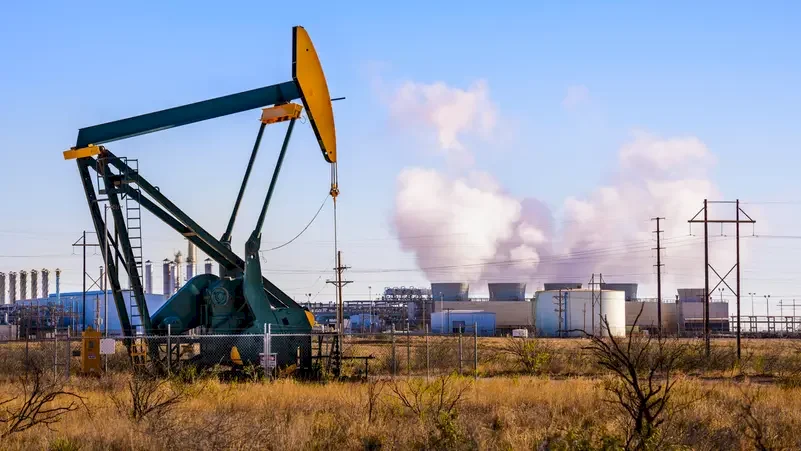
Stability of Oil Prices Amid Geopolitical Risks
SadaNews - Oil prices stabilized as investors assess the impact of a potential supply surplus against U.S. sanctions on Russia that have disrupted some crude flows.
Brent crude traded near $64 a barrel after a slight loss in the previous session, while West Texas Intermediate crude was below $60.
The price of Russian crude fell to its lowest level in over two years, just days before U.S. sanctions against major producers Rosneft and Lukoil are set to begin.
Standard futures have declined this year as surplus expectations put pressure on the market's future outlook, with the International Energy Agency forecasting a record surplus in 2026. The anticipated supply surplus is attributed to the return of halted production from OPEC+ and increased output from outside the group.
Sol Kafunik, chief energy analyst at MST Market, stated: "The market is balancing bearish market equilibrium expectations against bullish risks from supply disruptions due to geopolitical tensions in Russia and elsewhere."
He added: "If the implementation of sanctions is weak, conflict levels do not escalate, and OPEC remains on its current path, the market will continue to decline eventually."
Increase in Oil Sands Production in Canada
At the same time, oil sands production in Canada is increasing as the new expansion of the Trans Mountain pipeline comes online, bringing more oil to Asian markets after years of capacity constraints.
Production reached a record level in June and is expected to rise further to reach 6 million barrels per day by 2030, according to the Bank of Montreal.
However, other rising geopolitical risks may provide a support floor for prices, including attacks in Sudan that have reduced exports, and Iran's seizure of an oil tanker last week near the vital Strait of Hormuz. The market is also assessing the potential repercussions of U.S. pressures on Venezuela.
Geopolitical Tensions: Venezuela in the Spotlight
The United States plans to designate a Venezuelan drug gang, claimed to be led by President Nicolás Maduro, as a "foreign terrorist organization," and President Donald Trump stated he does not rule out sending U.S. troops to the oil-rich country.
Separately, Saudi Crown Prince Mohammed bin Salman is expected to meet Trump in Washington on Tuesday as the two nations seek to deepen relations.
The president at the White House on Monday noted that the United States will sell F-35 fighter jets to the kingdom, which he described as a great ally.

The Trap of High Prices: Debts Haunt Germans and Bankruptcy Knocks at Their Doors

Major Changes in the Saudi Public Investment Fund… What is Happening?

Gold Stabilizes and Heads for its Seventh Consecutive Monthly Gain

The IMF Disburses Approximately $2.3 Billion to Egypt Following Two Reviews of the "Reform...

Oil Rises Amid Expectations for Nuclear Negotiations Between Washington and Tehran

Gold prices near $5187 per ounce as tensions escalate

How Will Oil Be Affected If Tensions Between Washington and Tehran Escalate?
